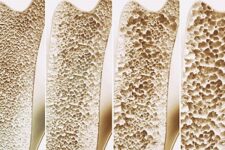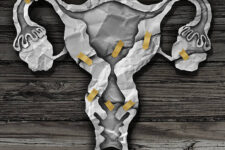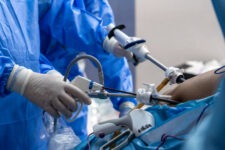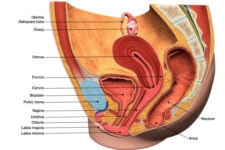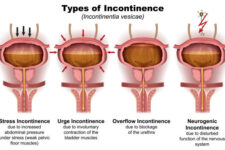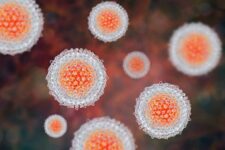
Menopause is a stage in a woman’s life that can bring significant changes and challenges. But don’t worry, medical research can provide valuable insights and guidance.
Estrogen plays a significant role in controlling your menstrual cycle. Understanding these processes will provide clarity on the changes you might experience.
Did you know that after menopause, the body starts to experience changes in its tissues?
During menopause, there are three main stages: perimenopause, menopause, and post-menopause.
Peri-menopause refers to the transitional phase leading up to menopause, while post-menopause is the period following menopause. Coping with peri-menopause can be challenging, but there are strategies to manage symptoms like hot flashes and flushes.
Speaking of hot flashes, we will discuss how to limit mood swings during menopause.
Keeping your emotions balanced is crucial during this time of hormonal fluctuation.
Estrogen, a hormone produced by the ovaries, affects various tissues in the body.
One of the most common changes after menopause is a decrease in collagen production. Collagen is a protein that provides structure and elasticity to our skin, joints, and other tissues.
As estrogen levels decline, collagen fibers become less dense, resulting in thinner and drier skin. The decrease in collagen also affects bone density, making bones more susceptible to fractures.
Estrogen is also important for maintaining healthy vaginal tissues, including the lining and lubrication. Without estrogen, the vaginal tissues may become thin and dry, leading to discomfort and pain during intercourse. Estrogen plays a role in maintaining the health and strength of our pelvic floor muscles and urinary tract. After menopause, the pelvic floor muscles may weaken, increasing the risk of urinary incontinence.
Estrogen is necessary for maintaining healthy blood vessels, including those in the heart and brain. Without estrogen, the risk of cardiovascular diseases, such as heart disease and stroke, may increase. Estrogen also helps regulate cholesterol levels in the body, and its decline during menopause may lead to elevated levels. Low estrogen levels can contribute to mood swings, irritability, and changes in cognitive function.
The decrease in estrogen can impact the health of our bones, increasing the risk of osteoporosis. Without estrogen, there is a higher chance of developing osteoporosis-related fractures, especially in the hips, wrists, and spine. Furthermore, estrogen affects the production and distribution of fat in the body.
Post menopause, there is a tendency for fat to accumulate around the waistline. This change in fat distribution can increase the risk of developing chronic diseases such as diabetes and heart disease. Additionally, estrogen affects the function of the skin’s sebaceous glands, leading to drier skin and potentially acne.
Overall, menopause brings about various changes in the body’s tissues, influenced by the decline in estrogen levels. It is important to understand these changes to manage and maintain optimal health during the menopausal transition.
Understanding how to cope and feel good during this stage is crucial for overall well-being.
One key aspect is understanding estrogen and its role in your body during menopause.
Detailed information about estrogen can help you navigate this transition more confidently.
The stages of menopause can vary for each woman, so it’s important to know what to expect.
Surviving menopause is not just about getting through it, but also about thriving during this period.
Fortunately, there are many strategies for healthy living after menopause that you can adopt.
Exercise has been shown to alleviate menopause symptoms and improve overall health and well-being. Keeping a balanced diet can also make a difference in managing menopause symptoms effectively. Maintaining a healthy weight and engaging in stress-reducing activities can contribute to feeling better.
Sleep disturbances are common during menopause, but there are ways to improve sleep quality. Managing hot flashes and night sweats can be challenging, but there are techniques to help reduce their frequency and intensity.
Vaginal dryness is another symptom that many women experience, but there are treatments available to alleviate it. Understanding the psychological impacts of menopause and seeking support can foster emotional well-being. Regular visits to your healthcare provider are important to discuss symptoms, treatments, and overall health.
Hormone replacement therapy may be an option, but it’s essential to weigh the risks and benefits with your doctor. Alternative therapies like herbal supplements and acupuncture are gaining popularity, but evidence is still limited. Educating yourself about menopause empowers you to make informed decisions about your health. Remember that every woman’s experience with menopause is unique, so be patient with yourself. Surround yourself with a supportive network of friends, family, or women going through similar experiences.
Finding activities that bring you joy and fulfillment can help you maintain a positive outlook during menopause. Taking care of your mental health is just as important as caring for your physical well-being. Don’t hesitate to seek professional help if you’re struggling emotionally or psychologically during menopause.
Through research and education, we can break the stigma surrounding menopause and embrace this transformative stage. Menopause doesn’t mean the end, but rather an opportunity for growth and self-discovery. Embrace the changes, focus on self-care, and seek support to navigate this journey successfully. Remember, menopause is just one chapter in the larger story of your life.
Please, kindly know that as an affiliate participant platform, we receive commissions on select quality products you may purchase. We Really Appreciate these commissions because they help our hosting fees and maybe someday will help us to grow to our fullest capacity. ClickBank is a retailer of products on this site. CLICKBANK® is a registered trademark of Click Sales, Inc., a Delaware corporation located at 1444 S. Entertainment Ave., Suite 410 Boise, ID 83709, USA and used by permission. ClickBank’s role as retailer does not constitute an endorsement, approval or review of these products or any claim, statement or opinion used in promotion of these products.

